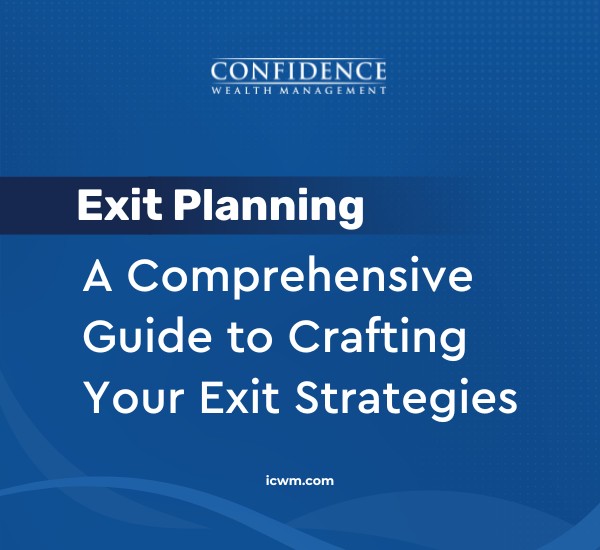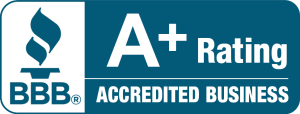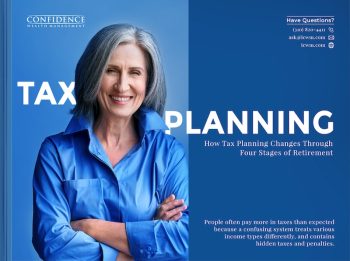As a business owner, you face unique challenges and opportunities when building a financial future. This post provides insights on mistakes to avoid and steps to take when building the retirement you desire—while managing your myriad responsibilities.
Small business owners are an essential component of America’s economy. In the United States, 99.7% of all firms are comprised of small businesses with 500 or fewer employees.1
Too often, however, a small business owner spends so much time and energy building their company that they neglect their personal financial future.
With this post, our goal is to show business owners how to maximize the value of their companies with business strategies that may also help them prepare for retirement.
Problem #1
One-third of small business owners don’t have retirement strategies in place.2
Building, running, and growing a company is tough. Business owners have countless responsibilities and too few hours in the day. Often, in the midst of fulfilling your professional priorities, you end up putting your personal financial life on the back burner.
If you have not prepared for your retirement, you are not alone. Many entrepreneurs think growing a business is all they need to retire. However, just having a business does not automatically mean you have a retirement strategy in place. Without a documented roadmap—one that goes beyond the hope of simply selling your business or passing it to your family—you could end up pushing back your ability to retire. In one survey, 34% of respondents said that they have no retirement strategy, while 12% have no plans to retire at all. Both of which are likely short-sighted.3
Delaying retirement is not always an option, though. Life often brings surprises, and you cannot always control when you will retire. For example, you may retire early because of certain challenges, such as health problems or a disability.
To help ensure that you can experience retirement on your terms—rather than reacting to what life or the business world throws your way—you need to proactively address these items NOW.
Create a Retirement Roadmap
- Define your ideal retirement. Clarify when you want to retire and what lifestyle you hope to enjoy.
- Build strategies to address your retirement. Determine the actions needed to fill the gaps between your current assets and the income you will need to support your desired retirement. Learn about business wealth management.
- Hold yourself accountable. Do not let the busy life of business ownership keep you from staying on track toward the retirement you desire.
Problem #2
Many want to exit their business soon, but only a few have planned for it.
For many business owners, the idea of selling their companies for top dollar or passing them down to future generations is a retirement dream. Many entrepreneurs, however, are not doing the work necessary to turn this dream into a reality.
Roughly 40% of family-owned businesses in the U.S. transition to the second generation, while around 13% make it to the third generation, and a mere 3% continue to the fourth generation or beyond.4 And studies also show that many business owners aren’t properly prepared to sell when the time is right. Business owners who sold underestimated the time needed to prepare. About 81% wish they had spent more time preparing for a sale.5
No matter how long you want to work and how much you love your business, a clear exit strategy is necessary to help foster the company’s longevity and preserve your financial health. If you want to be able to retire when and how you would like—and have your business last beyond your career—you need an exit strategy for accomplishing that goal.
Have an Exit Strategy
- Define your ideal exit strategy. Do you want to sell your business? Pass it to the next generation? Find an outside successor?
- Determine the real value of your business. We can help you provide a clear valuation of your company as it is today. Depending on how far you are from retirement or exiting, you might need to revisit this valuation in the future.
- Create a strategy—and stick to it. Your exit strategy might require you to hire new people, adjust your services, or implement a number of other changes.
Problem #3
Business owners are relying solely on the value of their company to fund their retirement, which is risky.
Many established entrepreneurs solely rely on the value of their business to carry them into retirement, which is a risky approach and can easily backfire. Not only can industries change, and companies falter, but many baby boomers are selling their businesses right now, which could potentially make a sale tougher in some markets.
Trying to build retirement savings, while you foster your business, can be challenging. With only so many dollars to go around and an endless list of business expenses, you might rather reinvest in your company. However, even if you are ready to sell your business at retirement, you need to have savings that are completely separate from your business.
Would you and your family be able to enjoy a comfortable retirement without your current income or profits from selling your business? If the answer is no, now is the time to start building your savings.
Separate Your Retirement Savings
- Balance your personal and business finances. When deciding how to invest your available assets or what salary to draw, make sure you focus on addressing both sides of your financial life.
- Explore available retirement-savings tools. We can help with that. With the passage of the SECURE Act, many rules regarding retirement plans have changed, making this a great time to evaluate your strategy.
- Review your budget and create a disciplined savings approach. Identify ways you might be able to trim your current expenses or save on your tax liabilities. Also, establish a habit of regularly contributing to your personal retirement savings.
Problem #4
While unique wealth strategies exist for business owners, many are not leveraging them.
It’s important to engage in wealth planning that addresses the broad range of your goals, needs and preferences. One of the most versatile and often-used tools in wealth planning efforts is insurance.
The versatility of insurance in wealth planning efforts can be compared to a Swiss Army knife. Even the most basic model has many uses and application. Now don’t get me wrong. Insurance isn’t a magic bullet for all financial-related matters, just as a Swiss Army knife isn’t the ideal tool for all jobs. Insurance is merely a potentially very formidable tool used as part of your wealth planning—one with enough versatility to serve in a powerful supporting role.
Wealth planning is meant to help you address a multitude of financial concerns—and given the versatility that insurance can offer, it could be a beneficial component within your wealth planning plan.
Explore Your Options
- Learn if insurance can play a supporting role in your financial plan. We can help you determine whether you can integrate insurance with other financial tools, working in tandem with your investment accounts, estate plans, and other financial instruments to help achieve your overall financial goals.
Problem #5
Entrepreneurs often overlook that they can lean on outside expertise.
Running a successful small business requires a number of skills—from delivering your product or service to managing employees and growth. Accustomed to shouldering a vast number of responsibilities, many business owners seem to forget they do not have to do it alone.
Hiring outside help not only gives you access to experienced professionals who can apply their experience to your specific needs, but it can also save you significant time.
For example, in a 2019 survey of almost 2,285 growth-oriented small businesses, over 60% of small business owners report that regulations negatively impact their growth. Over 60% expressed challenges with understanding and managing laws and government regulations. In fact, they spent an average of 6 hours a week just dealing with regulation and tax compliance.6
Also, business owners have both personal and professional financial strategy needs on top of regulatory and tax burdens, thus, increasing their need for external expertise.
Hire Outside Support
- Experience business wealth management from Confidence Wealth Management. Embrace the benefit of outside professionals. Aligning your financial life requires an understanding of its many facets. Let us take the weight off your shoulders.
How We Can Help
Launching and growing a small business is a challenging, time-consuming endeavor that is not for the faint of heart. As experienced financial professionals, we are here to help you overcome the obstacles that business owners often face and help you seize the opportunities before you.
In times of economic fluctuations and changing regulations, we believe it is critical to seek guidance. From our experience, small business owners who recognize and avoid these common mistakes—and take proactive steps to plan for the future—are better able to enjoy the lives they desire.
We know balancing your personal and business priorities is tough. We are here to serve as a resource for you and your family.
Wealth Strategies for Business Owners and Entrepreneurs
At Confidence Wealth Management, we create synergy between your business growth, personal wealth, and family legacy.
Connect with us and discover a world of possibilities tailored just for you.
1 Fundera.com, January 23, 2023
2 Score Association, April 25, 2022
3 CNBC.com, February 23, 2020
4 Cornell SC Johnson College of Business
5 UBS Investor Watch, 2023
6 GoldmanSachs.com, 2019










